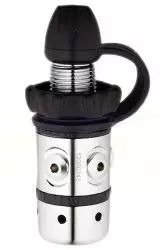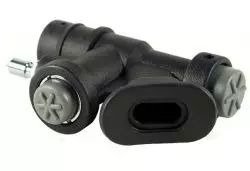
WHAT ARE 'DEEP STOPS'
Post-Open Water certification, most divers become concerned about Decompression Sickness (DCS), which is a fundamental aspect of recreational diving. Dive computers are essential for DCS risk management, and recent models like the Suunto D range have introduced 'Deep Stops' to reduce bubble formation during ascent. These deep stops, recommended for dives exceeding 12 meters, provide an additional safety measure by allowing nitrogen to escape from tissues before surfacing. Divers are urged to follow deep stops and ensure their buddy does the same for maximum safety. For a more comprehensive understanding of this crucial topic, refer to the article available on the DAN website.

BUOYANCY, AND WHAT MAKES IT GO WRONG!
Certified divers embarking on their underwater journey often underestimate the significance of mastering buoyancy control. Challenges can arise during safety stops, where divers struggle to prevent unwanted ascents. Overlooked among the factors influencing buoyancy is the dynamic nature of air levels in aluminum tanks, particularly in warm-water diving, which can shift a tank's buoyancy significantly during a dive. To ensure precise buoyancy management, divers must focus on balancing their weight for neutral buoyancy at the end of the dive and develop effective breath control techniques to enhance safety and control during descents, ascents, and safety stops.

TIPS ON EQUALIZING YOUR EARS WHEN DIVING
"Mastering Essential Ear Equalization Techniques for Safe Diving" Equalizing your ears is a fundamental aspect of diving, crucial for preventing discomfort and potential ear damage. Divers should become proficient in various equalization methods to ensure ear safety during descents and ascents. This article highlights common equalization techniques, emphasizing their significance in maintaining ear comfort and offering practical advice for divers to handle different underwater scenarios effectively.

HOW DOES A CYLINDER VALVE WORK
Watch our video to see how a cylinder valve works

WHAT IS VENTURI EFFECT, IN A SECOND STAGE
See exactly what the Venturi effect is inside a regulator 2nd stage, and how it effects performance.

HOW DOES A SECOND STAGE WORK?
Watch our video to see how a scuba regulator's 2nd stage works.

HOW DOES A PISTON 1ST STAGE WORK
See how a piston 1st stage works, by watching our video.

HOW DOES A SCUBA TANK MANIFOLD WORK?
Watch our video to see how a scuba twin tank manifold works.

HOW DOES A POWER INFLATOR WORK
Watch our video and see how a power inflator works.

HOW DOES A DIAPHRAGM 1ST STAGE WORK
Want to see how a diaphragm 1st stage works, watch our video.




